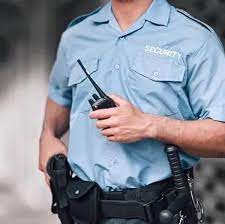Veteran West Virginia law enforcement officers decry bill to allow schools to hire security guards

CLARKSBURG, W.Va. January 28, 2024 Local law enforcement officers have recently called into question the effectiveness of a bill proposed in the House of Delegates that would give private, public and religious charter schools the ability to hire security guards.
While the ability to secure West Virginia schools is “vitally important,” the current writing of the bill is less than perfect, officials said.
House Bill 4851 sets forth rules and regulations for schools that wish to hire their own security officers. Although candidates need to have been active law enforcement in the past 10 years, their being a third party brings with it certain complications that would not be present if they were employees of county or municipal police departments, law enforcement officials believe.
Harrison County Sheriff Robert Matheny thinks the current wording of the bills leaves schools weaker than if the state were to fund active law enforcement officers for these roles.
Matheny and Bridgeport Police Chief Mark Rogers said security guards are less equipped for the job.
“I’m not saying that [private security officers] are untrained, but law enforcement officers are better suited to [the job,]” Rogers said.
The Harrison County Board of Education has already partnered with local law enforcement agencies to provide local schools with access to certified DARE and prevention resource officers.
“PROs do more than just security. They also have training to act as student counselors, act as teachers and as mentors,” Matheny said.
If a child reports themselves as a victim of a crime, PRO officers handle the investigation from the ground up. A security guard can only contact law enforcement, which would then pull an active-duty officer off the street to take over from there, Matheny said.
In the same vein, a security guard cannot enforce code. If a crime occurs, security guards would need to contact law enforcement to have it dealt with as only law enforcement has the means to take a case to a prosecuting attorney’s office without any third party required, Rogers said.
“So much of what PROs do couldn’t be done by security forces. Currently it’s a bad plan. I’d like to see the state redirect those funds to municipal police departments,” Matheny said.
Matheny went on to say current state funding for PRO officers is “not fair.”
For a county with one PRO, $15,000 is given to help with funding their salary. A county with two PROs is given $30,000 to partially fund their salaries. However, a county with seven PROs, such as Harrison County, is still only provided $30,000 in funding, as this is where it is capped, Matheny said.
“There is a place for private security guards, just not in schools,” Matheny said.
The Harrison school board currently funds the “lion’s share” of the salaries for the PROs employed in the county, Matheny added.
The school board provides $50,000 for each PRO, minus $30,000 for the state funds, for a total of $320,000 annually.
Matheny said even if the salary of one PRO could pay for the salaries of 1.5 security officers, “you’re not gaining many bodies and you’re losing a lot of abilities you only get from a certified law enforcement officer.”
In addition to the drug education, counseling and mentoring PRO and D.A.R.E. officers provide, a certified police officer at the scene can provide school officials and students with a faster response time from statewide personnel in the event of an emergency, law enforcement officials say.
Although West Virginia has not had a deadly school shooting, local law enforcement must plan for it, Matheny said.
“We hope for the best, but prepare for the worst,” Matheny said.
In the event of an active shooter scenario, certified law enforcement officers would immediately radio for backup, which also calls in SWAT teams and snipers, Matheny said.
A security guard in the same scenario would have to call 911, then a dispatcher would send law enforcement to assess the scene before a full response would be warranted.
“A lapse in response time could be deadly should tragedy occur,” Matheny said.
“It needs to be better thought out and looked at more closely,” Rogers said.
HB 4851 has been approved by the House Education Committee and is now in front of the House Judiciary Committee.



